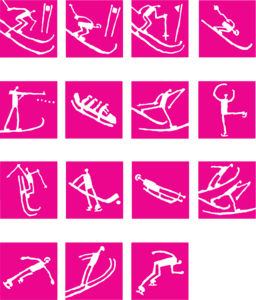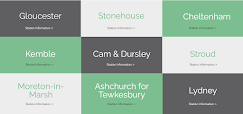Pictograms & Semiotics

Olympic Games
- Communicate to a global audience without written language, Olympic Games created the struggle of trying to direct and guide an international audience.
- Olympic pictograms initially created in 1964 by Tokyo who realised people coming to the event would mostly not be speaking Japanese.
- Wayfinding system using directly pictograms - tell stories with icons.
- Lillehammer Winter Games pictograms - based on Nordic ancient history of cave paintings.
Semiotics
- 'The theory of signs'
- Signs can be a range of things such as gestures, facial expressions, marketing, music, films, food, clothes, primitive symbols etc. For instance, apple can just mean an apple, or it can mean healthy. A stop sign means stop, but it can also mean danger.
- Immanuel Kant - German Philosopher who dealt with teleology and aesthetics.
- Ferdinand de Sassure- Swiss linguist, developed the theory of sign, signifier and signified.
- Roland Barthes- French Literacy theorist- "Mythologies' - semiotics to demystify the ideas of class structure and values that constrained people.
- Adam & Eve - apple can be seen as the signifier, signifying temptation in this case. Signifier can have completely different meanings based on a large variety of contexts, apple can mean healthy and also technology - brand.
- Braille - using dots to communicate.
- Road Signs - 'iconic' signs resemble the thing they represent - bike symbol. 'Symbolic' signs do not resemble what they stand for- ford sign.
Audience & Understanding -
- is the design familiar or unfamiliar with the audience - age differences cause different perceptions.
- Pre learned systems can be reused - traffic lights etc, able to refer to it each time we see new, sometimes unfamiliar signs.
Images
- Good for displaying 'concrete ideas' - good at explaining for people who aren't familiar with said thing.
- Not good at describing 'abstract ideas' - religion.
- Infographics
Words
- Good for conveying 'abstract ideas' - exist more in thought.
- Also communicate things that have already been learn't.
Colour Language
- Colour can be used as an alphabet.
- Signifies meaning.


Comments
Post a Comment